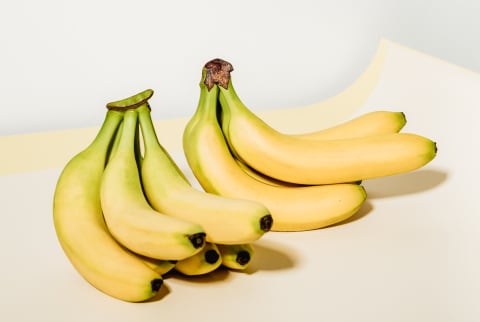Advertisement
Eating More Potassium Is Associated With Improved Heart Health In Women, New Study Demonstrates



We know that a healthy diet should include a good range of fruits and vegetables to provide our bodies with the nutrients and phytonutrients they need to thrive, but when it comes down to it, not enough of us are selecting our food or meals based on key minerals they offer.
Before you brush it off, listen up: A new study suggests that a potassium-rich diet may be particularly beneficial for keeping heart health in check.
What the study revealed.
In this study published in the European Heart Journal—which included 11,267 men and 13,696 women between 40 and 79 years old—participants' urine was measured to estimate potassium and sodium intake from their diet.
The authors then compared sodium and potassium intake with the participants' systolic blood pressure and other heart health metrics.
In the study, higher potassium intake in men was helpful for cardiovascular health outcomes. But after adjusting to factor in age, sex, and sodium intake, the researchers discovered that women who consumed more potassium each day demonstrated lower blood pressure and vice versa (less potassium, higher blood pressure). Interestingly, this finding was most significant in women with a higher sodium intake.
This reveals the beneficial and even protective importance of holistic mineral balance, specifically potassium and sodium intake. (In other words, it’s never just about one nutrient, especially for something as important as heart health).
So, how much potassium should you be getting each day?
Our daily needs for potassium are actually quite high (2,600 to 3,400 milligrams daily). "Women's daily potassium needs are 2,600 milligrams, but that increases to 2,900 and 2,800 mg during pregnancy and lactation, respectively. Furthermore, men need to take in 3,400 milligrams of this macromineral each day," shares Ashley Jordan Ferira, Ph.D., RDN, mbg’s vice president of scientific affairs.
Thankfully, so many of the foods you likely already include in your daily diet are good sources of potassium.
For example, half of an avocado contains 487 milligrams of potassium. Plus bananas, sweet potatoes, and even certain beans and lentils can all count toward your potassium needs, as well.
"Although bananas are potassium famous (and keep eating them!), several other plant-based foods1 top bananas for their top-notch potassium content. This includes foods like baked potatoes with the skin intact, dried apricots, prunes, raisins, yogurt, and cooked beet greens, lima beans, and acorn squash," adds Ferira.
How you can increase your potassium intake.
Of course, your diet should be the first step when it comes to reaching nutrient goals. Lean into a colorful array of fruits and vegetables daily.
Another useful addition to your routine is a high-quality, comprehensive multivitamin that features essential macrominerals like potassium, calcium, and magnesium. That’s why we recommend mbg's ultimate multivitamin+, designed with nutritional sufficiency in mind, but also functional health areas like heart health and longevity.*
Alongside an impressive range of 26 other essential vitamins and minerals and 6 unique longevity botanical bioactives, each serving of ultimate multivitamin+ provides women and men with 45 milligrams of potassium. Interestingly, it's rare to find this macromineral in multivitamins, shares Ferira, a nutrition scientist and dietitian.
"In a multi, 45 milligrams of this mineral is helpful since potassium inadequacy in our nation is massive. To put this major nutrient gap in perspective, only 2% of Americans2 are meeting daily nutritional requirements for this mineral. That means a mind-blowing 98% of us are failing to get enough potassium in our daily diets," she adds.
That's why taking a thoughtfully formulated multivitamin complements and simplifies your health routine. With just two vegan capsules each morning, you're working toward a more nourished body and overall well-being.*
The takeaway.
Tailoring your diet to support heart health may not be second nature, but by focusing on consuming more potassium-rich foods and taking a multivitamin that contains this essential mineral (all eyes on you, ultimate multivitamin+) you can work to bridge this gap and adequately nourish your body.
As this study suggests, turning an eye to where you're getting your potassium from and being intentional about meeting your daily needs can make a world of difference, especially for your heart.*
